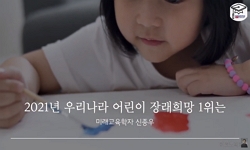This study explores the relationship between children’s citizenship and space with intent to seek a third place in school viable for their citizenship development. To that end, this study examines the concept of children’s citizenship and investig...
http://chineseinput.net/에서 pinyin(병음)방식으로 중국어를 변환할 수 있습니다.
변환된 중국어를 복사하여 사용하시면 됩니다.
- 中文 을 입력하시려면 zhongwen을 입력하시고 space를누르시면됩니다.
- 北京 을 입력하시려면 beijing을 입력하시고 space를 누르시면 됩니다.

장소 기반 어린이 시민성 함양의 가능성 탐색: 학교 내 제3장소를 중심으로 = An Exploratory Study on Place-Based Children's Citizenship: Focused on The Third Place in School
한글로보기https://www.riss.kr/link?id=A108910689
-
저자
김혜진 (한국교원대학교)
- 발행기관
- 학술지명
- 권호사항
-
발행연도
2023
-
작성언어
Korean
-
주제어
Third place ; Children ; Everyday living space ; Place for children ; Community solidarity ; 제3장소 ; 어린이 ; 일상공간 ; 어린이 장소 ; 공동체적 연대
-
등재정보
KCI등재
-
자료형태
학술저널
- 발행기관 URL
-
수록면
5-18(14쪽)
- 제공처
- 소장기관
-
0
상세조회 -
0
다운로드
부가정보
다국어 초록 (Multilingual Abstract)
This study explores the relationship between children’s citizenship and space with intent to seek a third place in school viable for their citizenship development. To that end, this study examines the concept of children’s citizenship and investigates the significance of relevant space and a third place in school. Based on the results, this study uses Moore & Young’s framework for spatial experience domains to shed light on the significance and potential of a third place in school as the space for developing children’s citizenship. The findings of this study highlight the following. First, from the perspective of physiography, given that a third place in school provides children with an opportunity for experiences as citizens and that children are engaged in discovering or making a third place, a third place in school has the potential to manifest citizens’ rights and obligations to the space they occupy. Second, as a social space a third place enables children to build rapport and interact with others, and empower them as citizens with communication or community competencies. These findings suggest the experience in a third place can exert influence on children in a way that they will grow into active citizens engaging in the subjects or issues of their community. Lastly, as an inner space, a third place allows children to feel a sense of belonging, whereby they can have identity as community members. As a follow-up to the study on a third place for children in everyday living space, this study opted for a literature review. Despite its limitations in terms of proposing specific methods of teaching citizenship, this study lays the theoretical foundation for future action research and is meaningful in that it explores the viability of place-based citizenship development in children.
동일학술지(권/호) 다른 논문
-
초등 사회과 지역학습을 위한 수업지도 방안 개발: 전주를 중심으로
- 한국사회과교육연구학회
- 천호성
- 2023
- KCI등재
-
2022 개정 사회과 교육과정의 정치⋅법 영역 성취기준 진술 분석: 자유민주주의 친화적 진술과 공화민주주의 친화적 진술의 구분
- 한국사회과교육연구학회
- 김찬미
- 2023
- KCI등재
-
2022 개정 사회과 교육과정의 개발 과정 및 특징 분석: 초등학교 일반사회 영역을 중심으로
- 한국사회과교육연구학회
- 박상준
- 2023
- KCI등재
-
초등⋅중학교 역사교과서 속 여성관련 서술양상과 개선방향
- 한국사회과교육연구학회
- 김옥경
- 2023
- KCI등재




 KCI
KCI DBpia
DBpia





